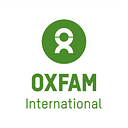4 key ways the EU can tackle the coronavirus human rights crisis
The coronavirus pandemic is a health crisis, an economic crisis, a social crisis, and increasingly a human rights crisis. Governments around the world have passed “emergency bills” to tackle the pandemic which often provide unchecked powers without clear limits or end dates. The European Union should stand up as a global champion of fundamental rights and put its new Action Plan on Human Rights and Democracy to the test, writes Iria Folgueira Castro, Oxfam’s Civic Space EU Policy Advisor.
Fundamental freedoms and democracy have been under threat for quite some time already in many countries around the world, and the COVID-19 crisis has only fuelled that trend. The EU’s top diplomat Josep Borrell warned recently about the “the growing impact of the pandemic on all human rights, democracy and the rule of law” and stated that the “heavy impact of the crisis on economic and social rights also needs to be addressed.”
Emergency measures to contain the virus risk are coming at the expense of human rights
Clearly, certain emergency measures are necessary to control the pandemic and its impact. However, there are many instances where governments use these measures to repress dissent and to manipulate social or political space: they suspend parliaments, increase surveillance of their citizens, and national security use excessive force to implement these measures. “We see the disproportionate effects on certain communities, the rise of hate speech, the targeting of vulnerable groups, and the risks of heavy-handed security responses undermining the health response,” UN Secretary General António Guterres warned recently.
The attack on human rights is paired with another dangerous trend: the decline in trust for multilateral institutions. The latest move of the US to delegitimise the WHO is a good example of that. However, multilateral agreements and institutions are essential to a global response to worldwide crises, to defend democracy globally and to maintain international human rights standards.
New EU Action Plan on Human Rights and Democracy comes at critical time
This is where the European Union can and must come in to take a strong stand for universal civil and political rights, and a truly global response that works for all people affected by the coronavirus crisis. The EU is one of the bastions of multilateralism, which the Union has rightly made one of the key priorities of its human rights and democracy action plan.
In that context, the action plan comes at a timely moment for the EU to support people’s rights to freedom of expression, association, peaceful assembly, access to information and participation. It outlines a set of foreign policy tools that the EU must urgently activate to promote fundamental freedoms and strengthen the space for citizens to act, ensuring that pandemic control measures are proportionate, time-bound and non-discriminatory. The EU has an opportunity to improve respect for human rights through political dialogue with governments, through direct support for civil society, and by speaking out on human rights and democracy in public diplomacy and communication.
Civil society crucial to overcome the coronavirus crisis
A key element of the action plan is to strengthen civic and political space by facilitating long-term strategic support to organised citizens. Civil society is critical to governments’ efforts to overcome the coronavirus crisis and its socioeconomic consequences and to hold institutions accountable during this crisis. Civil society organizations are also well positioned to deliver, and support the delivery of, a community-led pandemic response. They are vital for a response that does not discriminate, that ensures that marginalized and vulnerable people are not left behind.
The engagement of women’s rights organizations is particularly essential to address the specific needs and risks affecting women, and to develop gender-responsive policies. Like most crises, existing inequalities exacerbate the impact of the coronavirus on women in all spheres of their lives. Making up 70 per cent of the world’s unrecognized and underpaid health-workers, women are particularly at risk from the virus at work; the economic fall-out will hit them harder as they hold the majority of jobs in the informal sector; and they are increasingly unsafe in their homes as domestic violence skyrockets during the pandemic.
People-focused cooperation and collaboration should be at the heart of EU crisis response
The EU action plan takes a broad approach to civil society, targeting among others, associations, NGOs, grassroots organizations, labor unions and social movements including “spontaneous civic movements” and “mass protests,” and it highlights the importance of protecting freedom of expression, academic and media freedom and pluralism.
This is the right framework for the EU to promote the role of civil society in decision-making and complementing governments’ efforts to overcome the coronavirus pandemic and its socioeconomic impact.
The COVID-19 pandemic has brought our shared experience and interconnectedness sharply into focus. Our health is inextricably linked to the health of our neighbours. Our individual resilience builds on community resilience.
Cooperation and collaboration are not a choice, but the only way to respond to this crisis.
This entry posted on 6 June 2020, by Iria Folgueira Castro, Oxfam’s Civic Space EU Policy Advisor.
Learn more about and support Oxfam’s Coronavirus Response
